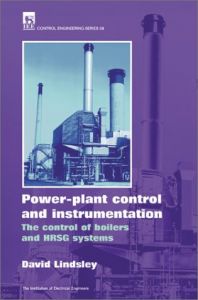
وبلاگ تخصصی مهندسی مکانیک
وبلاگ تخصصی مهندسی مکانیک کتاب،مقالات،نرم افزار،آموزش نرم افزار،حلال،جزوات،فیلم،کاتالوگ،پروژه،مجلات،سایت،اخبار،استاندارد،هندبوک، مهندسی مکانیک ،مهندسی مکانیک،کارشناسی ارشد مهندسی مکانیک،دکترا مهندسی مکانیک،مهندسی مکانیک، تلگرام ، تلگرام
وبلاگ تخصصی مهندسی مکانیک
وبلاگ تخصصی مهندسی مکانیک کتاب،مقالات،نرم افزار،آموزش نرم افزار،حلال،جزوات،فیلم،کاتالوگ،پروژه،مجلات،سایت،اخبار،استاندارد،هندبوک، مهندسی مکانیک ،مهندسی مکانیک،کارشناسی ارشد مهندسی مکانیک،دکترا مهندسی مکانیک،مهندسی مکانیک، تلگرام ، تلگرامدانلود کتاب راهنمای کاربران اباکوس برای انالیز ومدلسازی
This manual is a reference guide to using
Abaqus/Standard (including Abaqus/Aqua, Abaqus/Design,and Abaqus/Foundation) and
Abaqus/Explicit. Abaqus/Standard solves a system of equations implicitlyat each
solution “increment.” In contrast, Abaqus/Explicit marches a solution forward
through time insmall time increments without solving a coupled system of
equations at each increment (or even forminga global stiffness matrix).
Throughout the manual the term Abaqus is used to refer collectively to
bothAbaqus/Standard and Abaqus/Explicit; the individual product names are used
when information appliesto only one product. Product identi
firs appear at
the beginning of each section in the manual (excludingoverview sections)
indicating the products to which the information in the section applies.The
manual is divided into several parts:
• Part I, “Introduction, Spatial
Modeling, and Execution,” discusses basic modeling concepts inAbaqus, such as
defining nodes, elements, and surfaces; the conventions and input formats
thatshould be followed when using Abaqus; and the execution procedures for
Abaqus/Standard,Abaqus/Explicit, Abaqus/CAE, and several utilities that are
provided with the Abaqus system.
• Part II, “Output,” describes how to
obtain output from Abaqus and the format of the results (.fil)file. It also
describes the output variable identifiers that are available.
• Part III,
“Analysis Procedures, Solution, and Control,” describes the analysis types
(static stressanalysis, dynamics, eigenvalue extraction, etc.) that are
available. Detailed discussions of thedifferences between how Abaqus/Standard
and Abaqus/Explicit solve finite element analyses areprovided in this
chapter.
• Part IV, “Analysis Techniques,” discusses various analysis
techniques available in Abaqus such assubmodeling, removing elementsorsurfaces,
and importing results from a previous simulation todefine the initial conditions
for the current model.
•
Part V, “Materials,” describes the material
modeling options and how to calibrate some of the moreadvanced material
models.
• Part VI, “Elements,” describes the elements available in
Abaqus.
•
Part VII, “Prescribed Conditions,” describes the use of
prescribed conditions, such as distributed loads and nodal velocities.
•
Part VIII, “Constraints,” discusses the use of constraints, such as
multi-point constraints.
•
Part IX, “Interactions,” discusses the contact
and interaction models available in Abaqus.
کنترل نیروگاه

Friction and Flow Stress in Forming and Cutting
Friction and Flow Stress in Forming and Cutting

edited by
Philippe Boisse, Taylan RItan, Kees uan
Lutteruelt
: Contents
How to Understand Friction and Wear in Mechanical Working
Processes
Friction During Flat Rolling of Metals
Friction in Modelling of
Metal Forming Processes
Friction and Wear in Hot Forging
Basic Aspects and
Modelling of Friction in Cutting
Experimental Investigation and Prediction of
Frictional Responses in the Orthogonal Cutting Process
Variable Tool-Chip
Interfacial Friction in 2-D and 3-D Machining Operations
Sensing Friction:
Methods and Devices
The Problem of Constitutive Equations for the Modelling
of Chip Formation: Towards Inverse Methods
Rheological Behaviour in
Multi-Step Hot Forging Conditions
Measurement of Flow Stress and Critical
Damage Value in Cold Forging
Index
Metal Fatigue دانلود کتاب خستگی در فلزات
Metal FatigueEffects of Small
Defects
and Nonmetallic Inclusions

Yukitaka Murakami
Kyushu University, Japan
: Contents
1 . Chapter1: Mechanism of Fatigue in the Absence of Defects and
Inclusions
Chapter2: Stress Concentration
Chapter3: Notch Effect and Size
Effect
Chapter4: Effect of Size and Geometry of Small Defects on the Fatigue
Limit
Chapter5: Effect of Hardness HV on Fatigue Limits of Materials
Containing Defects. and Fatigue Limit Prediction Equations
Chapter6: Effects
of Nonmetallic Inclusions on Fatigue Strength
Chapter7: Bearing
Steels
Chapter8: Spring Steels
Chapter9: Tool Steels: Effect of
Carbides
Chapter10: Effects of Shape and Size of Artificially Introduced
Alumina Particles on 1.5Ni-Cr-Mo (En24) Steel
Chapter11: Nodular Cast
Iron
Chapter12: Influence of Si-Phase on Fatigue Properties of Aluminium
Alloys
Chapter13: Ti Alloys
Chapter14: Torsional Fatigue
Chapter15: The
Mechanism of Fatigue Failure of Steels in the Ultralong Life Regime of N >
10' Cycles
Chapter16: Effect of Surface Roughness on Fatigue
Strength
Appendix A . Instructions for a New Method of Inclusion Rating and
Correlations with the Fatigue Limit
Appendix B . Database of Statistics of
Extreme Values of Inclusion Size
Appendix C . Probability Sheets of
Statistics of Extremes
Index
دانلود نرم افزار کاربردی شبیه سازی FTI Forming Suite 5.0
FTI Forming Suite 5.0 نرم افزاری جهت شبیه سازی،برآورد و بهینه سازی هزینه تولید پلیت های با ورق فلزی می باشد .این نرم افزار را همراه با کرک به صورت رایگان از بانک نرم افزارهای ایران سیتی دریافت کنید .نرم افزار بر روی ویندوز XP تست شده است .آموزش کرک کردن نرم افزار و فایل کرک به صورت خیلی ساده در فایل دانلود قرار داده شده است.

 دانلود با لینک مستقیم
دانلود با لینک مستقیم رمز فایل
:www.iran30t.com
رمز فایل
:www.iran30t.com
